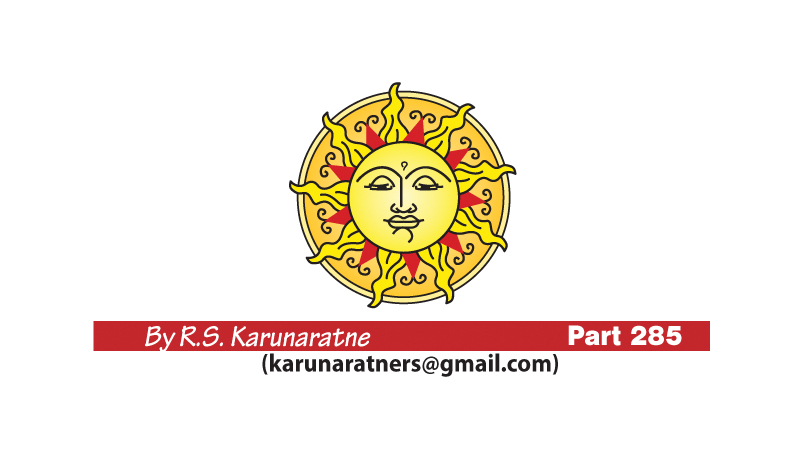Prepositions Part 4: A preposition is a word placed before a noun or a pronoun to show in what relation the person or thing denoted by it stands in regard to something else. There are over 100 prepositions in English. This is a very small number compared with the vast number of nouns, adjectives and verbs found in English. Here are some of the prepositions used in English:
****
In
Something that is in something else is enclosed by it or surrounded by it.
Roger carries all the documents in his briefcase.
If something is in a place, it is there.
Are you still living in Jaffna?
A person in a piece of clothing is wearing it.
Give this pen to that girl in a blue dress.
If something is in a document, book, play or film, you can read it, see it, or hear it there.
You can find his number in the telephone directory.
When you see something in a mirror, you see its reflection.
Susan looked at herself in the mirror.
If someone is in a group, they are part of it.
Do you enjoy being in a crowd of admirers?
If you are in a play or sport, you take part in it.
Lara played an important role in a play.
If something happens in a particular year or month, it happens during that time.
Muriel’s second child was born in 2014.
‘In’ is used to say how someone is expressing something.
Barbara spoke to me in French.
‘In’ is used to describe how certain people are arranged.
The students stood round the teacher in a circle.
‘In’ is used to indicate how old someone is.
Mary was in her forties when she joined the company.
In between
If something is in between things, those things are on either side of it.
Their houses were located in between two hills.
Including
This is used to mention specially someone or something that belongs to the group of people or things you are referring to.
At the party everyone, including my mother, started dancing.
In favour of
If you are in favour of something, you support it.
The Government is in favour of abolishing capital punishment.
In front of
If someone or something is in front of a particular thing, they are near the front part of it.
The man in front of me looked horrible.
In lieu of
‘In lieu of something’ means instead of it.
He received a house in lieu of gratuity.
Inside
If someone or something is inside a place or container, they are surrounded by its sides.
You are not supposed to smoke inside a temple or church.
If you say that someone has a feeling inside them, they have that feeling but not expressed it.
When Emma got the prize she felt the happiness inside her expanding.
In spite of
‘In spite of’ is used to introduce something which makes the situation seems surprising.
In spite of the threat of war, he says that peace is possible.
Instead of
If you have to do one thing instead of another, you have to do the first thing.
Why are you wearing a scarf instead of a tie?
Into
If someone goes into a place, they are in it.
The Mahaweli River flows into the Indian Ocean.
If something crashes into something else, they collide with it forcefully.
The car crashed into a tree.
The following verbs are usually followed by ‘into’:
Blossom, brainwash, bully, change, coax, coerce, con, convert, deceive, degenerate, delude, develop, frighten, galvanise, lull, metamorphose, make, mislead, pressurise, push, seduce, shame, talk, transform, translate, trick, turn, wheedle
If someone is into a particular type of thing, they are very interested in it.
Most teenagers are into romantic novels.
Irrespective of
If something is true irrespective of a particular factor, that factor does not affect it.
Stern action will be taken against offenders irrespective of their social position.
Like
If someone is like another person, they have similar characteristics.
Ron looked like a thief.
We use ‘like’ when giving examples of the kind of thing we have just mentioned.
In crowded places like airports, you must take care of your luggage.
If someone behaves like a particular thing, their behaviour is similar to the behaviour of that thing.
The protesters were rounded up like cattle by the police.









